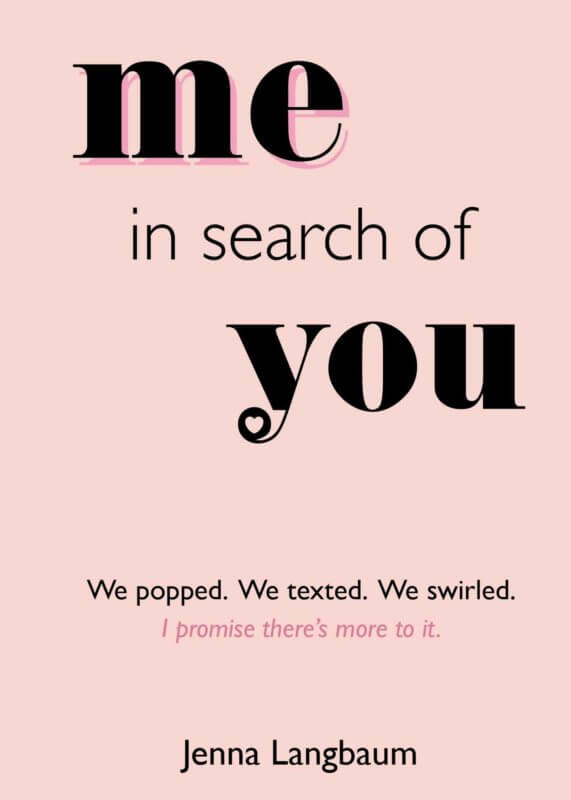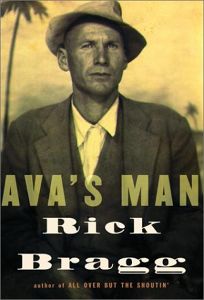Beholding the lilacs and two good books
It isn’t easy to compose an article on a laptop while sitting outside in the sun, but this day is too beautiful to spend sitting inside in a darkened room, so I’m going to try. I don’t think I have ever experienced a more beautiful spring than the one we are having. Green fields! Flowers! Blossoming trees! And a sweet fragrance that seems to be almost constantly wafting through the air, not only by day but into the evening as well. It is quite intoxicating, and I can’t get enough of it. I confess that all I’ve been wanting to do lately is plant myself on the grass like one of the many golden-yellow dandelions and behold my lilac bush—its fragrant lavender blossoms, its shining green, heart-shaped leaves, inhaling my favorite aroma in all the world, bright sun warming my back and shoulders. It’s been heavenly. And I don’t want to miss a minute.
 As for reading…I recommend a petite, slim volume I never would have heard about or probably even stumbled upon had not a friend mentioned it to me: me in search of you. “We popped. We texted. We swirled. I promise there’s more to it,” reads the subtitle. Which probably leaves you wondering, okay, great, interesting, but what’s this book about? Basically, dating is the answer. Online dating. But wait, this is so creatively done. Jenna Langbaum explains her work as “a collection of the blips, the starts and stops, the ebbs and flows, the closings and openings, the scratches, the tears, and the deflates and reflates of trying … the conversations I stew and squander in, the bubbling intimacy I’ve buried—all unearthed from the basement bin of my heart.” Her book is young, refreshing and unusual, more prose than poetry, yet firing in short, pointed blips like poetry. Even though the author is the age of my children, this book hits home—right where it counts, as they say—in heart, gut and memory, rekindling flames and tumbling embers of longing, angst, shame, dazzling hope and sorrowful regret. “I find myself waiting for this seemingly inevitable you, like the held breath of a countdown, like the footsteps of the man delivering my pizza, like the zoom of my family car pulling up my street. It is in this waiting that I am simultaneously shrinking and billowing. It is in this waiting that I just want to scream, Come get me. I’m out front. I’m in my party dress; you’ll know it’s me. Text me when you get here.”
As for reading…I recommend a petite, slim volume I never would have heard about or probably even stumbled upon had not a friend mentioned it to me: me in search of you. “We popped. We texted. We swirled. I promise there’s more to it,” reads the subtitle. Which probably leaves you wondering, okay, great, interesting, but what’s this book about? Basically, dating is the answer. Online dating. But wait, this is so creatively done. Jenna Langbaum explains her work as “a collection of the blips, the starts and stops, the ebbs and flows, the closings and openings, the scratches, the tears, and the deflates and reflates of trying … the conversations I stew and squander in, the bubbling intimacy I’ve buried—all unearthed from the basement bin of my heart.” Her book is young, refreshing and unusual, more prose than poetry, yet firing in short, pointed blips like poetry. Even though the author is the age of my children, this book hits home—right where it counts, as they say—in heart, gut and memory, rekindling flames and tumbling embers of longing, angst, shame, dazzling hope and sorrowful regret. “I find myself waiting for this seemingly inevitable you, like the held breath of a countdown, like the footsteps of the man delivering my pizza, like the zoom of my family car pulling up my street. It is in this waiting that I am simultaneously shrinking and billowing. It is in this waiting that I just want to scream, Come get me. I’m out front. I’m in my party dress; you’ll know it’s me. Text me when you get here.”
There is a hint of Bridget Jones here, maybe a touch of Nora Ephron, but this is edgier, more daring, a kind of wayward and fast-moving cupid’s arrow that hits its mark in the reader’s own deep knowing/remembering re: searching, waiting, waltzing, buzzing, submerging, spilling, playing, plunging, exhaling (all titles from Langbaum’s scribblings, musings and fitful, incisive blips, scratches and typewritten doodles). Okay, I don’t know the author personally, but I almost do. She is the Jenna that Cat, my best friend’s 27-year-old daughter, has been talking about since she was in second grade—one of her best friends—that’s pretty close, right? While reading her work, I detect echoes and harmonies of the humor of that generation. Jenna’s book (I can call her Jenna, right?) currently lives in a ray of sunshine on my bedside table, too fresh, bright and alive to put on a shelf, yet. You can pick it up and start reading on any page, as each short entry has a life—a beginning, middle and end—of its own. But I recommend reading it through from start to finish (it won’t take long) because there’s a story here, just as I suspect there is a story for all of our love-lives…and I’m talking not just the main narrative we would recount to acquaintances and our children, but the real one, with all its starts, stops, highs, lows, inconsistencies, contradictions, flailings, pretendings, seekings, seethings, burnings, guzzlings, waltzings, plungings…. Though light and easily readable in a sitting or two, this book takes one deftly, passionately and memorably through the samsara of, well…of the timeless odyssey of me looking for you. Highly recommend.
 A wordcount limit will prevent me from delving as deeply as I would like into some other worthy books I have read as of late, so I will tell you of only one other. Ava’s Man, by Rick Bragg, is a book my tennis coach and friend, Jake, loved so much that he drove it all the way from South Burlington to my door. “You gotta read this,” he said as he turned to drive back to the tennis court. It tells the story of the author’s grandfather, who died before Bragg was born but whose life was so vivid and remarkable that it was impossible, it seems, to lay him to rest. It begins with a description of Charlie’s widow, Ava, whose “face had a line in it for every hot mile she’d walked, for every fit she’d ever threw.” “No, hon,” she would say, when asked, “‘I ain’t goin’ to get me no man.’ And then she would start to rock again, with satisfaction. ‘I had me one.’”
A wordcount limit will prevent me from delving as deeply as I would like into some other worthy books I have read as of late, so I will tell you of only one other. Ava’s Man, by Rick Bragg, is a book my tennis coach and friend, Jake, loved so much that he drove it all the way from South Burlington to my door. “You gotta read this,” he said as he turned to drive back to the tennis court. It tells the story of the author’s grandfather, who died before Bragg was born but whose life was so vivid and remarkable that it was impossible, it seems, to lay him to rest. It begins with a description of Charlie’s widow, Ava, whose “face had a line in it for every hot mile she’d walked, for every fit she’d ever threw.” “No, hon,” she would say, when asked, “‘I ain’t goin’ to get me no man.’ And then she would start to rock again, with satisfaction. ‘I had me one.’”
Her man Charlie was “probably the only man on earth who could love that woman and not perish in the flame,” writes Bragg, whose book takes place mostly in the backwoods hamlets of Georgia and Alabama, when roads were dirt and you could feed your children hot biscuits, ham and fresh cantaloupe on Sunday and buy your oranges by the bushel. But this family couldn’t always indulge in such luxuries. The story begins in the foothills of the Appalachians in the 1930s and proceeds through the Great Depression, when Charlie, an itinerant roofer and a moonshiner who ingested exactly one pint for every gallon sold, struggled to keep his family fed, clothed and shod. He was a man of some contradiction. He was a lover AND a fighter. He could brawl with the best of them, and often did, but had an abiding soft spot for children and babies; “his heart melted around them, his spirit soared.” He spoke with a smooth, low voice. “If he wanted to make a point, he just said damn, for punctuation, as in ‘That’s a damn big house, fellers, to roof in this damn heat.’ He did not spit in front of ladies, usually, and among men he drew a line between good, solid biblical cursing and what he called ‘ugly talk,’ which was anything a twelve-year-old would scrawl on an outhouse wall. He did not spit in front of ladies, even if he had to swallow the juice. He tipped his hat, like in a cowboy matinee.” He was blessed with “that beautiful, selective morality that we Southerners are famous for.” He condemned liars and stealers, yet “he saw nothing wrong with downing a full pint of likker—a full pint is enough to get two men drunk as lords—before engaging in a fistfight that sometimes required hospitalization.” “He saw no reason to obey some laws—like the ones about licenses, fees and other governmental annoyances—but he would not have picked an apple off another man’s ground and eaten it.”
Ava’s Man draws to a quiet close in the same place it started, in the foothills of the Appalachians, but in the present day, with the author pondering what his feisty, bigger-than-life grandpa would think of him, not as a man, but as a boy. He muses, “I bet he would give me some candy, and sing me a song.”
This book tells a great story about a great (in his own way) man in the great (in its own way) deep south in a greatly trying time. As one reviewer put it, “a masterly family chronicle and a human portrait so vivid you can smell the cornbread and whisky.” Thank you, Jake, for bringing it around.
And now, back to the lilac bush, where I can be found, rather like Ferdinand the bull in the old childhood classic, peacefully smelling the flowers.

